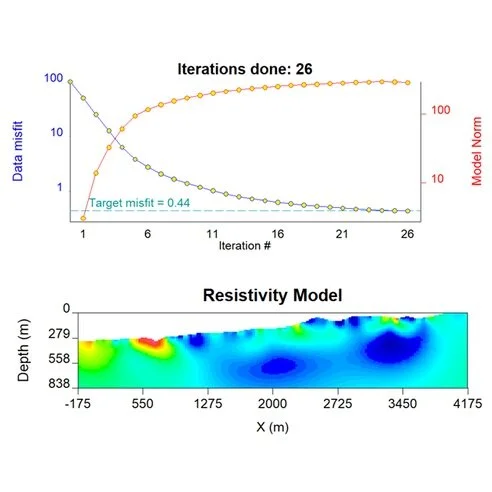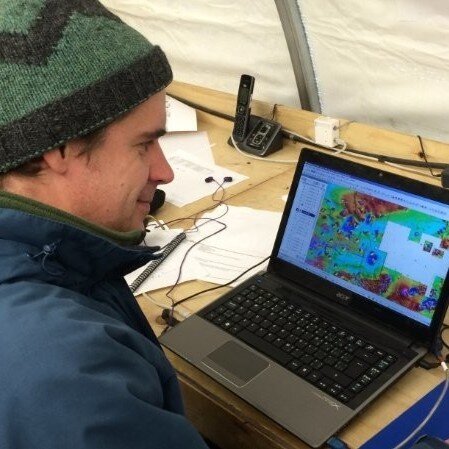Event start time above should be in your timezone - the event starts at 4pm UTC/GMT
Deterministic inverse problems are commonly set up to recover a model with certain characteristics (determined by model constraints) that can produce a response that fits the observed data to a particular level (determined by data constraints). Many of the inversion algorithms described in papers and included in software packages provide numerous options for model constraints. However, the same level of attention is not afforded to data constraints. Most algorithms provide little guidance on how to determine or refine the error estimates used to calculate the data misfit. These values can cause portions of the data set to be either over or underfit and will have a significant impact on the recovered model. I have always found it unsatisfying to simply choose an arbitrary value and then refine it based on my feeling about the model. To bring some rigour to the process I have developed a semi-automated workflow to determine error estimates.
To start the session, I will demonstrate my workflow with a DCIP dataset. The workflow performs well with different data sets and data types; however, it has been developed empirically and likely bends or breaks some statistical rules. During the discussion I would like to address the following questions:
Does the workflow make sense theoretically?
Have I re-invented something that already exists by another name?
Can people recommend a smarter way to achieve the same goal?
Is it worth the extra effort?
The examples and some background info will be shared as notebooks before the session to enable people to come prepared for the discussion.
Sean Walker
Sean Walker is a geophysical consultant based in Edinburgh Scotland with over 20 years of experience in a variety of fields within applied geophysics including mineral exploration, airborne electromagnetics and the detection and discrimination of unexploded ordinance. He spends a lot of his time thinking about geophysical problems and is making a concerted effort in 2021 to take a stab at solving a few of them.
Rendezvous: a virtual workshop series
Subsurface Rendezvous is a regular online event aimed at diving into technical subsurface topics whilst exploring a distributed and asynchronous workshop format.
What we know so far is that each event:
begins with a live session between 30-90 minutes including a presentation / demo followed by open discussion or interactive work
an open discussion channel is available on swung’s slack to continue the conversation, include people who couldn’t make the live session and to make space for contributions
the session is streamed to youtube too, allowing people in other timezones to watch and participate in the slack discussion
After the live event the presenter will guide the discussion towards their outcome / objectives
Got a topic that you are keen to discuss or work on? let us know in slack.



